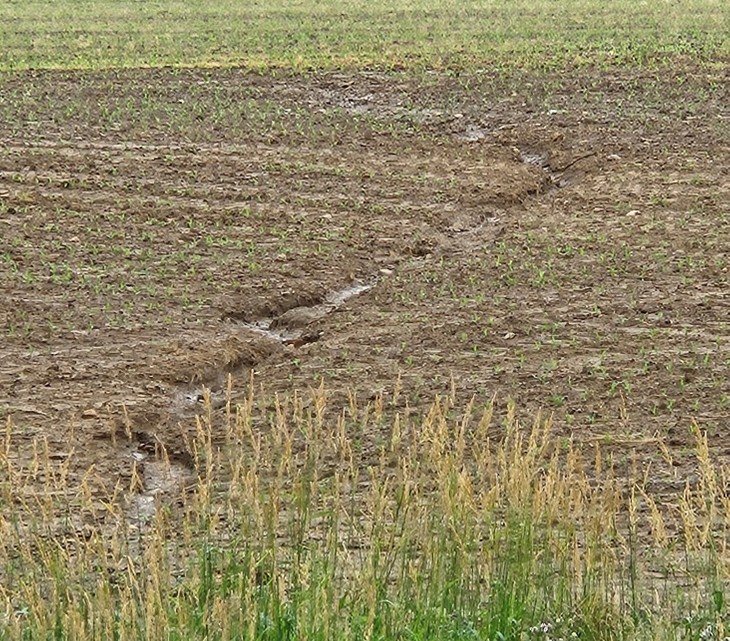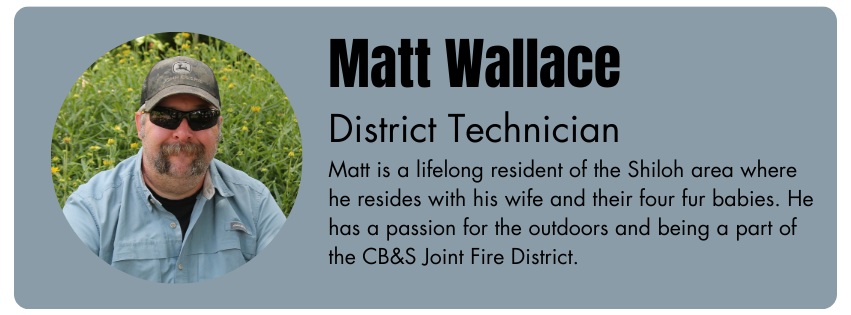With extremely hot weather and heavy rapid rains ponds can get stressed due to the potential for the water column to flip and/or an influx of nutrients from nearby properties. As a result, you might see rapid water level increases and algae or aquatic plants growing. These things may cause an oxygen depletion in the water column and could cause a fish kill.
So, the question then becomes how do we fix some of these things? Algae blooms are driven by high nutrient loads within ponds which come from leaves, grass clippings, fertilizers and other material deposited into your pond. While a little bit of this material, commonly known as muck, is normal and can be broken down within the aquatic ecosystem, too much of it can be harmful. How do you tell if you have too much muck in your pond? Simply by walking around the inside edge of your pond! Pay attention to how much you sink into the inky black material and how it envelopes your feet and legs. The deeper you sink, the more of this highly nutritious, nutrient laden muck your pond has. The best way to help your pond digest muck is by adding beneficial bacteria, which are live active bacteria that help break down the muck and restore the volume back in your pond. Often the more muck that is in the pond, the more treatments you will need which are generally completed in the spring and fall of the year. Pond aeration can also help by increasing oxygen levels and boosting bacterial activity.
For sparse rooting and floating aquatic vegetation adding species of fish like grass carp, tilapia (which will not over-winter in Ohio) or channel catfish that eat these plants will also restore volume to your pond. There are occasions where you may want to consider dredging your pond and we recommend that you contact a Richland SWCD technician who can help make recommendations. By increasing the volume and supplementing oxygen in the pond you will help make your investment not only look better but be more hospitable for the fish and other aquatic friends within. Some additional things you can do to help your pond is by leaving the grass taller around it to help filter out sediments and nutrients that could come in from overland flow. You can also utilize native switch grass plantings, often times marketed as ornamental grasses, in areas of high flow. In which they will help slow down water, increase water infiltration, and help reduce sediments and nutrients from overland flow.
Wet Spots and Your Property
Do any of these look familiar to you?



When it comes to wet spots in yards and fields there are options for landowners to improve drainage. Some options may be more appealing due to financial cost, topographic feasibility or personal capabilities. In no particular order things that homeowners can choose from are:
- Installing a tile to remove surface water if you have an area on your property that can allow it to drain without causing you additional issues.
- Installing a French drain to help with potentially excessive rainfall inundation.
- Adding soil amendments like gypsum, perlite and organic matter
- Reshaping the low spot so that it has positive drainage.
These options can also help with areas that retain rainwater for long periods of time, we may recommend obtaining a soil test before selecting one of these potential solutions so that you get more bang for your buck. The Richland Soil and Water Conservation office can offer assistance over the phone but usually a site visit is recommended so that we can visually observe the entirety of your concern. Services like this are provided to the public for free.
